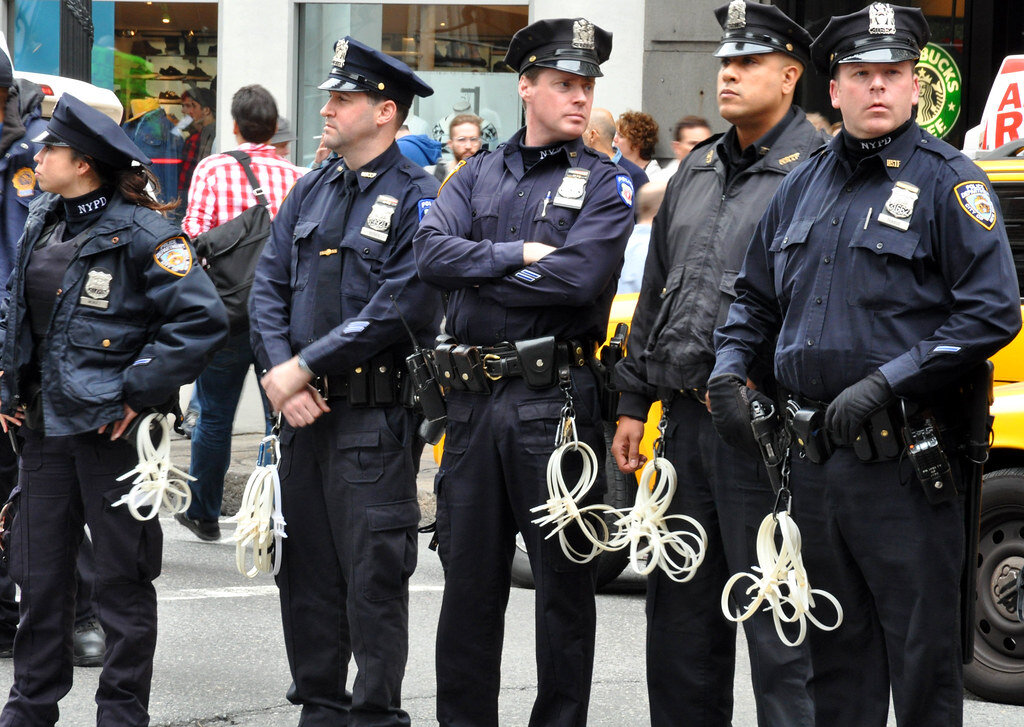OPINION: Winds of change are blowing. Labor can’t stand against them.
by Douglas Williams & C.M. Lewis
The gales of change are blowing across the United States.
The death of George Floyd at the hands of the Minneapolis Police Department has sparked an uprising unlike any we have seen since the death of Martin Luther King, Jr. sparked rioting in over 100 cities in 1968. At its core, the demand from the protesters is a simple one: stop killing us. The means by which that demand is to be achieved is also simple, despite the attempts from legacy media to complicate a matter on which they have very little understanding.
Defund, disarm, and abolish the police.
This might be a shocking prospect to many. After all, police departments and their employees seem such an ingrained part of our society and culture that it can be difficult to imagine a world without them. One of the longest-running television shows in the United States is literally called Cops. Michael Chiklis has made a career out of playing both the good cop and the bad cop before millions of adoring fans on television. The presence of the local police force and their marked vehicles is something that is ubiquitous, as is the surveillance state that they have erected.
The popular visage of policing in our world can be boiled down to a simple three-word phrase first adopted by the Los Angeles Police Department in 1963 as their motto: protect and serve. The actions of police over the last two weeks, however, have shown the world a different image; one that community activists and organizers have been trying to show the world for decades made clear to everyone in 4K HD. It is a picture of a police that punishes rather than protects, that serves the holy grail of private property and capital rather than actual human beings.
Through all of this, the labor movement has taken varied stances on this issue. The AFL-CIO has taken the stance of reform, but has made clear that another key demand of protesters—the expulsion of police unions from the federation, including the International Union of Police Associations (IUPA)—will go unfulfilled.
But wind, as an element, is all-encompassing. You can avoid it no more than you can avoid the air that gives us life. The attempts of America’s largest labor federation to block the air with their collective pinky finger not only lacks common sense, but it is damaging to our relationships in marginalized communities; communities that have been the backbone of labor movement support for generations. More importantly, however, it places the labor movement on the wrong side of history. We cannot afford to repeat the same mistakes as Samuel Gompers with the Chinese Exclusion Act, or George Meany with Vietnam.
If the leadership of the AFL-CIO is too afraid to listen, then we must take our demands to the grassroots. To this end, we have created a list of the 50 largest police departments in the United States, their union affiliation, and their regional central labor council. Although few of the largest police unions are affiliated to the AFL-CIO, the regional voices of labor in America’s largest cities should take a long, hard look at local law enforcement, and make plain what side they are on.
We would urge folks to make it plain with one voice that workers do not kill other workers, and that America’s labor movement must stand on the right side of history. It is time to expel police unions from our movement of the working class.
You can access the spreadsheet here. Please note that “Yes” for confirmed AFL-CIO affiliate indicates that they have been confirmed to affiliate, whether directly or through an international union, to the AFL-CIO. “No” indicates that it has not been confirmed whether or not they are an affiliate.
Douglas Williams is an editor of Strikewave and a third-generation organizer originally from Suffolk, VA. He is a PhD candidate at Wayne State University and works as a labor educator.
C.M. Lewis is an editor of Strikewave and a union activist in Pennsylvania.

